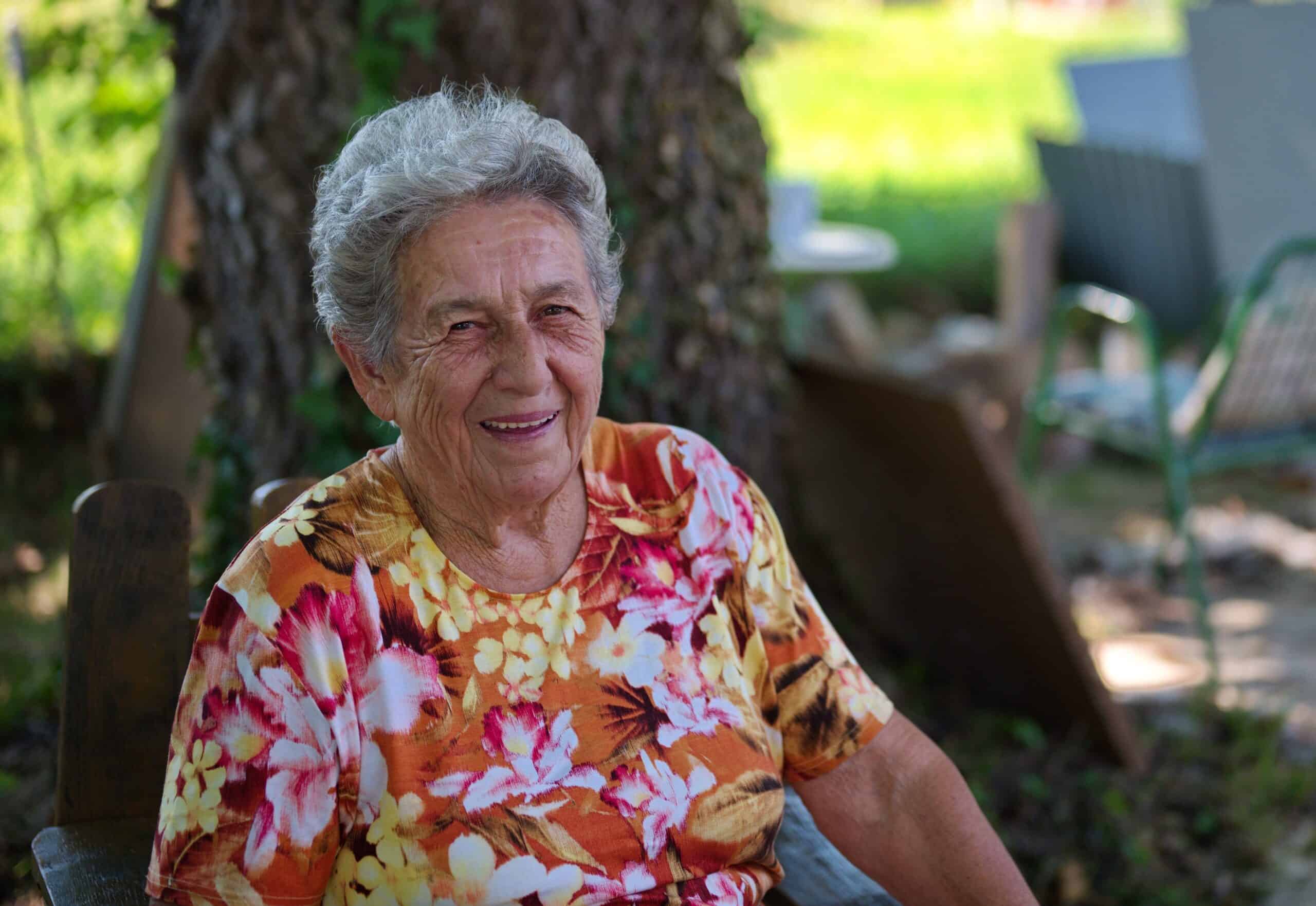Background Story Part V
During our bedtime ritual one night the first week that Mom and Dad Gridley lived with us, I noticed that one of Mom Gridley’s legs was pinker than the other one when she was in her nightgown. She always wore slacks during the day, and socks and shoes. Even at night, she wore socks with her slippers and kept the socks on as she slipped into bed. I asked her about the reddish leg, and she said it was fine, nothing wrong with her. While at work the next day, I called a doctor near our home that was new to us, because our family doctor had recently retired to do research, and asked the nurse what she thought about the situation. I knew nothing about the health care systems in Lexington at that time. Our former doctor was part of the Lexington Clinic and the doctor near our new home was part of the University of Kentucky. The nurse thought I should bring Mom Gridley into the office to have her leg looked at, so I made an appointment. Mom Gridley did not want to go to the appointment. I asked her if she could take off her sock so I could see what the sock was hiding. I could faintly make out that there was a bandage under the sock. She said no, she was fine. At that time I did not realize that Mom Gridley was not capable of making good decisions for herself. I made a point of looking at her leg each night that first week. It did not get better, in fact, each night it seemed to me to be redder than ever.
That following Sunday, after church and after dinner, I asked to look at what was under her sock one more time, this time with insistence. “Mom, I really must look at your foot!”, I said, with kindness and firmness as I stood next to her as she was seated at the table. “I care about you and I am concerned because the redness of your leg has not gotten better”. My mother, the nurse, had instilled in me the knowledge that redness in a limb can signal infection, and I shared my concern with fellow church members that morning and they agreed that something should be done even if Mother Gridley was not agreeable. Marjorie slowly worked to take off her sock, and then the bandage. What I saw almost made me faint! There were two craters, ulcers, on her ankle, with red rims and that sickish chartreuse color of pus within. They were deep: about an eighth of an inch to a quarter of an inch, and about an inch and a half across. I just said, “We need to go to the doctor. Now.” Lawrence was home, and chose to stay home with his father while I took Mom to the urgent treatment center.
The medical staff at the urgent treatment center was very concerned about the ulcers on her ankle (I heard the words ‘amputation a possibility’ in disbelief) and about her high blood pressure. They wanted to hospitalize her immediately. Mom Gridley begged me not to let them put her in the hospital.
Mother Gridley had shared with me her extreme fear of hospitals on more than one occasion through the years. I asked the medical staff if she had to go to the hospital immediately because her life was in danger. They said they would work to get her blood pressure down in the office and if they could, she could go home and make an appointment to see a doctor the following day. We were there in the office a long time but eventually the medication they gave Marjorie worked, her blood pressure went down, and we went home—with a prescription to alleviate her high blood pressure and with a prescription for a topical solution I was to apply to her wounds each day and bandages.
It wasn’t easy getting home for work the next day and getting Mom and Dad Gridley both into the car and out of the car by myself, but Lawrence wanted to work late. He was still living in the land of denial and delusion at that point and wasn’t much help with their needs. The doctor looked at Marjorie’s lower leg and talked and joked with her about becoming a peg legged pirate if she didn’t take care of the problem she was having with her leg. Marjorie still seemed oblivious to the gravity of her infected ulcers.
The doctor also talked with Milford and asked him some simple questions that Milford was not able to answer. He gave Milford and Marjorie a flu shot. He gave me contact info for getting Marjorie in to see a wound specialist. He asked if he could speak with me in the waiting room while the nurse did something with Marjorie and Milford.
I told the doctor everything that had transpired that was relevant for him to help Marjorie and Milford, and answered his questions. Then he said, “You’re in deep _____!” I was expecting a little more guidance than that. That doctor left Lexington to practice in Louisville soon after we visited him.
Unbeknown to me at the time, Marjorie had entered two different health systems that did not ‘talk’ to each other. In other words, what was done by one doctor was not communicated to what was done by another doctor. When I took Mom Gridley to the Urgent Treatment Center on Sunday, they were part of the Lexington clinic and scheduled an arteriography. The results were sent somewhere. To this day I don’t know where because we were seeing the wound care specialists and the bone infection specialists in the University of Kentucky Healthcare System. The technician who did the arteriography told me that if Marjorie was his mother he would have stints put in to increase blood flow. I never heard anything else about stints, except from Marjorie, who said, “What are these stints, I don’t want any stints”, over and over. Now I know that it is up to the patient and/or their family to keep all medical records and share them with each provider they see. Perhaps someday technology will be adopted by health care providers that will enable them to access a patient’s records from any system or location, but that day has yet to come. Providers should at least educate people to the fact that they need to keep all records and share them with each health care provider they see!
Lawrence and I had a meeting later that night, at my insistence. I told him I could not take care of both of them by myself, and work at my job, and be a mother to our son. I asked for his help, and he reluctantly said he would take his mother to her appointments, and see to her other needs as they came up. I would focus on his father. We both had part time jobs taking care of them besides our other part time jobs and full time jobs now.
I still had the lion’s share of taking care of Milford and Marjorie because I was the one doing her wound care each day and Lawrence could not take off work as easily as I to make some of Marjorie’s appointments. But somehow I was able to get everything accomplished. My boss did complain that I was taking off too many days, but I had never taken my allotted days off during my previous ten years of employment, so I did not feel guilty. Besides, family first. Our son Jacob suffered from neglect during that time, however. He was a senior in high school and resented the time I spent on his grandparents. I rationalized that it was a character building experience for him to see his grandparents getting good care from their family.
Milford was very pleasant and I even enjoyed his company during those first two months. We Christmas shopped together in addition to the doctor’s visits, grocery shopping and time at home. The Veteran’s administration helped us by sending a woman for a few hours each day Monday through Friday to bathe him and cook lunch and change his adult briefs while I was at work. I asked for her to come in the morning to help with the morning ritual, but they did not have that time available. I was hoping someone could get him ready for the adult day center in the mornings if and when he began attending there. We were put on a waiting list. They gave us a wheelchair which Milford seemed to think was for his amusement and so he was happy to use it. We rearranged our furniture to make it more wheelchair user friendly. Even so, I had to help him off the floor on more than one occasion—usually when I was unaware he wanted to get up from the couch. I knew better than to try to lift him. He was six foot four and double my weight. I gave him step by step instructions on what to do with his body so he could get himself up.
I researched options for getting better care for Milford. He and Marjorie were still alone several hours during the day while we were at work, and Milford was too much for Marjorie. Besides, she was mean to him to the point that it seemed like abuse and I felt sorry for him if I was not there to intervene. She still thought he was incontinent on purpose and brought up how he wet the bed when they were first married over and over. I felt trapped because Lawrence and I had no time together when we were off from work. I called Hospice and was told that Milford was not eligible because of his Alzheimer’s diagnosis. They said that with Alzheimer’s, one can get ‘stuck’ in a stage of decline and stay there for an indeterminate amount of time. Hospice only serves those who have been given six months or less to live.
I visited two of the adult day centers in town. One specialized in Alzheimer’s care and had a waiting list. They could only give us services during a couple of afternoons a week. The other one seemed disorganized and dilapidated. While Milford and I were there, I asked him if he would consider coming on a daily basis, he said, “I have volunteered in places like this before, and I guess I can do it again”. I didn’t know there were two other adult day centers in town. As it turned out, we could not afford any of them.
To be continued….
The post Background Story Part V appeared first on Aging With Grace.






